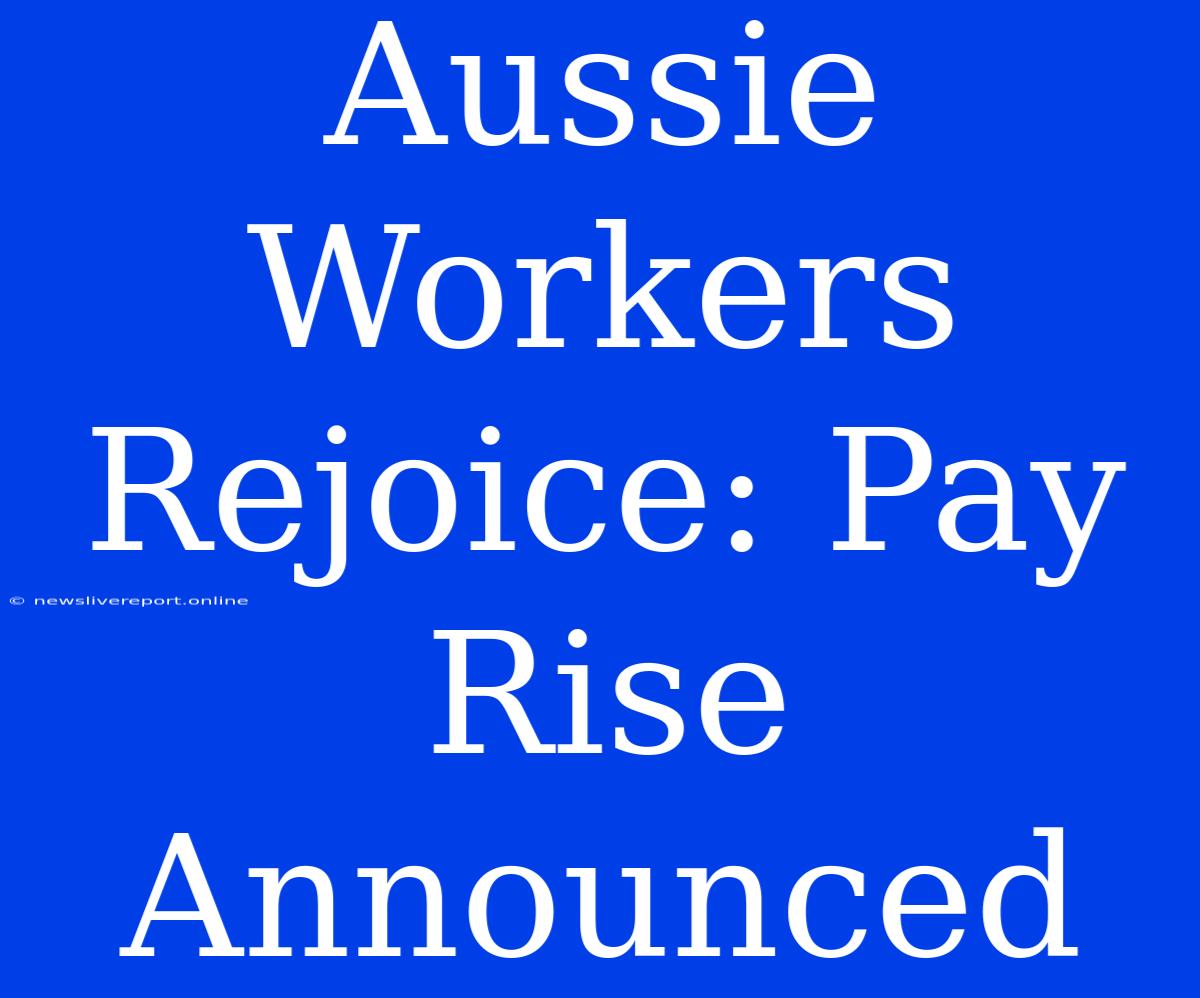Aussie Workers Rejoice: Pay Rise Announced, But Is It Enough?
Australian workers are celebrating a long-awaited pay rise, with the Fair Work Commission announcing a 5.75% increase to the minimum wage and award wages. This marks the biggest increase in a decade and comes as inflation continues to rise, putting pressure on household budgets.
What Does This Mean for Workers?
The pay rise, effective from July 1, 2023, will benefit millions of Australians. For a full-time worker earning the minimum wage, this equates to an extra $100 per week. While this might seem like a significant increase, some argue that it's not enough to keep up with the current cost of living.
The Inflation Factor
The 5.75% pay rise comes amidst an inflation rate of 7% – the highest in over 30 years. This means that real wages are still declining, and many workers are still feeling the pinch. The Australian Council of Trade Unions (ACTU) has expressed disappointment, arguing that the increase is "not enough to offset the cost of living crisis."
A Mixed Bag for Businesses
While the pay rise will be welcomed by workers, it could also put pressure on businesses already struggling with rising costs. Some businesses may face challenges in absorbing the increased wage costs, potentially leading to price increases for consumers. This could further fuel the inflation cycle, creating a difficult situation for everyone.
The Future of Wage Growth
The decision by the Fair Work Commission marks a significant step towards improving the living standards of Australian workers. However, ongoing concerns about inflation and the cost of living suggest that more needs to be done to ensure that wages keep pace with the rising cost of living. The future of wage growth will likely be a key factor in determining the Australian economy's trajectory in the coming years.
Key Takeaways:
- Australian workers are receiving a 5.75% pay rise, the highest in a decade.
- This increase may not fully compensate for inflation, with real wages still declining.
- Businesses may face pressure to absorb the increased wage costs, potentially leading to price increases.
- The future of wage growth will be crucial in managing the economic challenges facing Australia.
It remains to be seen whether the pay rise will be enough to alleviate the financial strain on Australian households. The ongoing impact of inflation and the need for further wage growth will continue to be debated in the months ahead.

